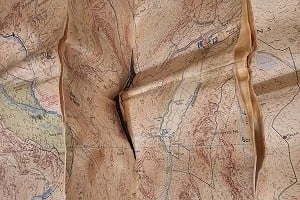
Physical activity is known to boost mental wellbeing, and in that regard it seems simply going for a walk is one of the best things you can do. In this series so far we have spoken with people who've found walking an effective response to issues with mental health, so here we approach the subject from a different angle. Emma Holland combines a job in a mental health unit with work as a Mountain Leader, two very different roles that together make for an interesting perspective on mental health and the outdoors.
- Walking for Mental Health: The Thru Hiker, with Keith Foskett
- Walking for Mental Health: The Adversity Adventurer, with Alex Staniforth
UKH: When did you start working in the NHS?
Emma: Approximately 12 years ago a job came up whilst I was volunteering at the hospital that I now work at and I had the necessary skills and experience to make an application. The hospital is a Low Secure Forensic Unit, part of Nottinghamshire Healthcare Trust, and it supports people who have either committed an offence, are at risk of committing an offence or who need support and a safe place to be because of a risk to others or maybe a risk of self-harming behaviours. The work we do is focused very much on rehabilitation.
What does your health work involve?
I manage and run the Library Service within the hospital on behalf of Nottingham City Council who have a service level agreement with the NHS to provide a library service to patients who can't access services within the community. My day to day job is quite varied and interesting and I really enjoy my role. I work within the Occupational Therapy Team helping to support the patients on a rehabilitation journey, focusing on their education and literacy.
I enjoy being part of the journey and adventure of others, to see the success of an individual and knowing that my friendliness, patience and non-judgmental attitude has in some way helped someone to take individual steps, no matter how small
I provide access to music and films for relaxation and I teach basic IT skills. I also run a work placement scheme which helps give patients structure, confidence and new skills which they will then be able to take into a work place once they get discharged. I also occasionally escort patients who are under a section out into the community to introduce and support them with accessing local services.
Working in the hills and working in mental health services don't seem on the face of it to have anything in common, but I'd like to explore how these two different roles might complement each other… Do 'people skills' cross over in any way between the two? Might experiences you've gained in one role ever inform the way you do things in the other?
You're totally right, there is no obvious connection or anything particular in common on first glance – apart from me in this particular case. The roles couldn't look more different. However where they do complement each other, in my opinion, is most definitely the 'people skills' side of it. I really like being around people and I think that my ability to engage, connect, communicate and understand people is what makes my two roles so successful. I find it easy to transfer those skills between both settings.
Having an interest, willingness and aptitude to want to support, encourage, inspire and enthuse people whether that is in a health setting in my day job or outdoors is my biggest priority in both of the roles. I enjoy being part of the journey and adventure of others, to see the success of an individual and knowing that my friendliness, patience and non-judgmental attitude has in some way helped someone to take individual steps, no matter how small.
Working out on the hills as an ML you clearly need to have the essential practical skills and experience, but having that added ability to engage and connect with your group and to be approachable, friendly and fun whilst keeping people safe is essential. When people walk with me I want to create good, positive, happy memories and for them to be excited about the outdoors, nature and their own potential journey ahead. In the hospital, I sometimes find myself teaching some basic skill of some sort therefore helping individuals build confidence, self-esteem and communication. As an ML I teach navigation regularly and I'm always adapting and evaluating my own teaching style and questioning myself on how I explain things so that I can ensure my delivery is appropriate and relevant according to the individual's learning style.
I suppose in a sense you're teaching coping strategies and self-reliance in both roles, but just in different contexts: would that be fair to say?
Absolutely and the skills are transferrable in many ways. I can be in the hospital one day recommending a book for a patient for some self-help, relaxation or education. The next day whilst I'm out in the mountains when I'm teaching navigation for example, I'm sharing skills that could help the person to stay safe or cope in a particular critical, stressful or dangerous situation. It's all about giving and building confidence and increasing self-esteem in individuals and being positive, supportive and encouraging. There is something really rewarding about delivering a basic map reading or compass skill session and watching the learners put together all the pieces of the map jigsaw! It's the same feeling working in mental health – when a patient gets discharged and moves on into the community. When I see them out and about using community services independently and confidently, knowing that I was part of that progress makes me feel very proud.
What, for you, are the rewards of working in mental health?
Quite simply, seeing the small steps that people make, knowing that I have been part of that process and in some way, I hope I have made a difference or helped.
It's all about giving and building confidence and increasing self-esteem in individuals and being positive, supportive and encouraging
Have you ever found it challenging or emotionally draining?
Oh gosh yes! It can be tiring, distressing, scary and shocking at times. The patients that I work with are in a Forensic Hospital setting so there are many other situational and legal complications which sometimes make progress slow, time consuming and frustrating for everyone. I always find it hard if someone has been making really good progress and then for some reason it all falls apart because as a team, we then all need to start from scratch again to help them through the recovery process. Frequently there are situations that need handling with sensitivity, respect and care. I work in a very supportive team and there is always clinical supervision and support available.
Do you ever feel you need a break from the health work, and if so does the ML work fulfil that need?
No, I really enjoy the mental health work and I'm good at switching off from my day job when I go out on the ML work at the weekends. My ultimate goal would most definitely be to combine the two on a more regular basis, but I do think that could potentially be quite challenging and draining. Whilst my mental health role isn't a particularly physically tiring one, my role as an ML can be tiring emotionally and physically at times. I know the importance of looking after my own mental and physical health – after all they are most definitely connected – which is why I so strongly advocate and promote the benefits of getting people to exercise outdoors.
For a recreational walker, going to the hills can be valuable time out of the daily routine, but for MLs it's also another way you earn a living: does it ever seem like just another job, or do you still get something out of it personally?
I am very good at scheduling my own personal mountain and walking holidays into my increasingly busy diary. I make sure I get my own individual time out on the hills several times a year. This is important because I need to get out and walk without putting my professional walking head on. Walking is my own private therapy; it makes me feel alive, refreshed and happy. When I'm leading groups or navigating it can be difficult to totally relax because it is a job after all, one that I love and I take the responsibility of the work seriously. My love of walking is something I am so passionate about sharing but I am also a classic introvert/extrovert, so I do need my own space and time out – sometimes alone and sometimes with my partner or friends. Every time I go out into the hills I get something from it, whether it's my own exercise for the week, getting fresh air after being stuck inside an office all week or meeting new interesting company whilst out and about. I see it as a way of developing and enhancing my own knowledge and learning from those experiences.
Walking seems to be increasingly recognised for its mental health benefits: what is it about walking and being in nature that you think can be so therapeutic and restorative?
The benefits of walking, fresh air, nature, beautiful scenery, exercise, and the chance to get active in the outdoors can never be underestimated. Most of the patients see the same four walls day in day out, year in year out and many have been in some sort of institution, hospital or prison for a large part of their lives. I don't think many people stop and think quite how lucky they are to have access to such beautiful countryside here in the UK. I do stop myself quite frequently when I'm out on the hills and I check in with how I'm feeling – mentally, physically and emotionally. Being outside just simply ticks all the boxes in my mind and re-energises, refreshes and makes you feel good – whether you realise it or not! What more do we need?
What does walking, and being in the hills, mean to you personally?
It's the one thing that I can't imagine ever being without or not being able to experience. Life is a great adventure and for every walk that I go on I always see something new, visit somewhere new or have a new experience of some kind. My favourite thing to do (if I get a free evening) is to plan a walk, think about visiting somewhere new that I've not been before or I get my books and maps out to piece together a new route to explore. When I'm out on the hills, summiting a mountain, watching a sunrise or a sunset, I feel truly alive - it's as simple as that.
When you're working to support adults with mental health difficulties, do you ever take them out walking or suggest that they try it?
It isn't my specific role or responsibility within the hospital because we have sports instructors who plan and deliver the physical activity programme, which includes weekly local walks in green spaces.
I do get chance to take patients out on visits to other places within the city and I always encourage walking as a means of travel. We have a walking group in the hospital that visits Derbyshire a few times a year. I work elsewhere on that particular day so I can't be involved.
More work definitely needs doing nationally and locally to fund and support initiatives to get people outside. I think the mental health agenda is finally getting the press, recognition and some of the funding it needs but there is still a long way to go and more could be done. I see my role as an ML to advocate the benefits of exercise outdoors.
Although walking is the easiest and most accessible form of exercise, there are however some barriers to some people who may have mental health difficulties. Walking is definitely recognised and well known to improve mental health but it also needs to be managed and carefully introduced to anyone new to walking or exercise. The majority of the patients that I work with have other significant health or physical conditions that need to be individually managed and monitored to ensure any exercise regime is carefully introduced. Self-esteem, confidence and medication can affect mood and the ability to participate in physical activity.
A short while ago I was working on a one-to-one with a patient and escorting them out on a weekly visit to the local library. We had the option of taking a bus, however I encouraged them to walk and to take different routes to help learn to navigate around the city. Once they had realised how much they enjoyed walking they started to explore other areas of the city independently.
Another participant in this article series, Alex Staniforth, spoke about Mind Over Mountains, a Lake District walking weekend that aimed to promote the benefits of the mountains for mental and physical health. How did you get involved with that?
Alex initially approached me via a mutual acquaintance. He was keen to get a qualified ML who was also female and who had experience of working within mental health. Alex also wanted to ensure that there was a good balance of male/female support at the event. It was also necessary to have an ML who would understand and consider the challenges that some of the participants may face. Mental Health affects people in many ways from self-confidence issues through to moderate depression, anxiety and then the more severe diagnosis such as bi-polar, schizophrenia and personality disorder. I ticked all the boxes and I was very keen to get involved in planning and supporting the project. I had been wondering for a while how I could find some way to combine my passion for supporting people struggling with their mental health with my love and passion for the outdoors. When this opportunity came along I was excited and so keen to help make it a success.
How did it go, and do you think there should be more events of this sort that help people who are struggling with mental ill-health to get outdoors?
The whole weekend went really well. There was an interesting and varied programme of activities and talks but also time for personal reflection. I think some people found the weekend quite challenging at times as they were in a remote location without access to a phone signal or Wi-Fi. It forced (and I'm using that word very loosely) conversation, relaxation, and reflection. Everyone had signed up for the weekend for different reasons. I'm sure everyone took something different away. It was quite emotional at the end when we returned back to base to say goodbyes. Friendships were created, support networks were formed and people had a real sense of achievement. It felt like we had been up in the mountains for weeks not days. It definitely had an impact, which was one of the overall objectives.
Interestingly, it wasn't without one or two personal challenges for me. It was a larger group than I normally choose to work with so that introvert/extrovert in me struggled at times with the intensity of the weekend, I found it hard not having any space (because I was working) for my own solitude and reflection. Being up at Skiddaw House YHA with the stunning view and the amazing weather was the perfect antidote to peoples' normal daily lives. Everyone arrived with different physical abilities and confidence in the outdoors. All the walks were a success and we managed to get everyone to the high summits, encouraging and supporting them along the way. This was hard at times but individuals supported each other to achieve. It certainly bonded the group and it was a wonderful experience for a smaller handful of the group, as they were totally out of their own comfort zones and challenging their physical limits.
I think Alex is hoping to get similar events like this arranged, which would be fantastic. I would definitely be the first ML in the queue offering my time and support. Since the event I have been actively networking, trying to find other MLs who have an interest in this kind of work who also have the knowledge and experience in mental health work. It would be great to link up and try to move this agenda forward. Mental Health can be a very challenging environment to work in and arranging any event or activity up in the hills in potentially remote locations needs a lot of thought, research and preparation.
Should we as a society, and perhaps mental health practitioners in particular, be working harder to promote the benefits of the outdoors?
Yes. The hospital where I work has a very large outdoor garden/woodland area with a vegetable patch, chickens, and a relaxing outdoor space. Joinery and other practical skills workshops also take place outside. The patients who can't leave the hospital get the opportunity to spend time in the green spaces and take gentle woodland walks. More work definitely needs doing nationally and locally to fund and support initiatives to get people outside. I think the mental health agenda is finally getting the press, recognition and some of the funding it needs but there is still a long way to go and more could be done. I certainly see my role as an ML to advocate the benefits of exercise outdoors.
Mental health and physical health are clearly connected so perhaps more involvement, input, funding and support is needed from other partners and organisations. It's a big challenge that needs a big approach. What Alex [Staniforth] is doing is a great start but I do think it needs more support from National Government, charities and mental health organisations. If we could get more high-profile figures such as sports stars involved this would help raise the awareness. We need to get people talking.
You can see more from Emma Holland here:
- www.emmahollandmountaintraining.co.uk
- Twitter - @emmahollandmt
- Insta - @emmahollandmt
- FB - https://www.facebook.com/EmmaHollandMT/
- LinkedIn - https://www.linkedin.com/in/emma-holland-88041b159/
- Email - emmahollandmt@icloud.com
- REVIEW: Trekmates Ankle Gaiters 23 Apr
- INTERVIEW: Exmoor Coast Traverse - England's Best Kept Mountaineering Secret 10 Apr
- REVIEW: Rab Muon 50L Pack 9 Apr
- REVIEW: Boreal Saurus 2.0 22 Mar
- REVIEW: The Cairngorms & North-East Scotland 1 Mar
- REVIEW: Mountain Equipment Switch Pro Hooded Jacket and Switch Trousers 19 Feb
- Classic Winter - East Ridge of Beinn a' Chaorainn 12 Feb
- REVIEW: Salewa Ortles Ascent Mid GTX Boots 18 Jan
- REVIEW: Patagonia Super Free Alpine Jacket 7 Jan
- REVIEW: Deuter Fox - A Proper Trekking Pack For Kids 27 Dec, 2023



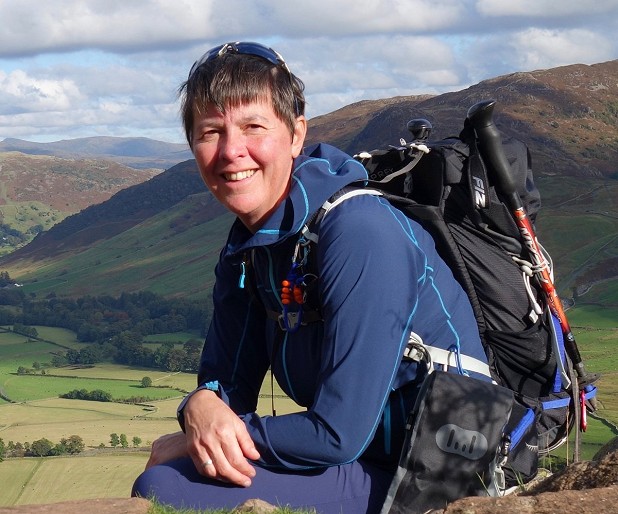
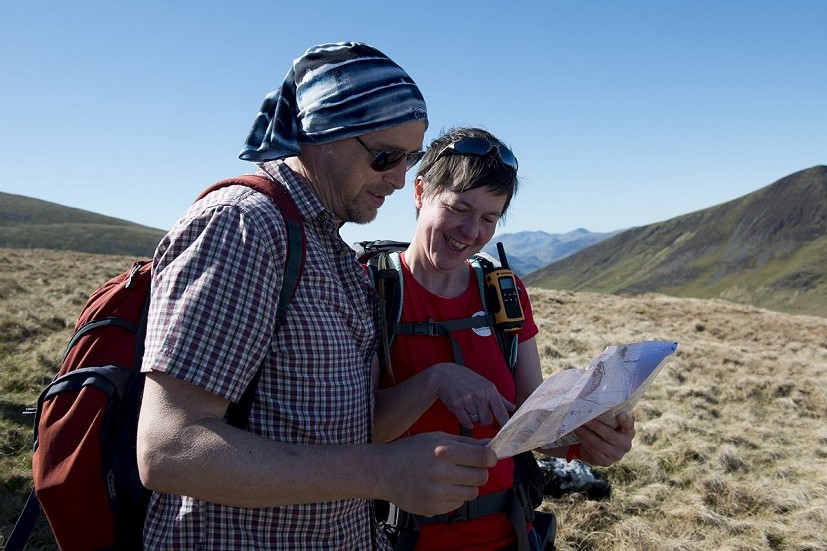
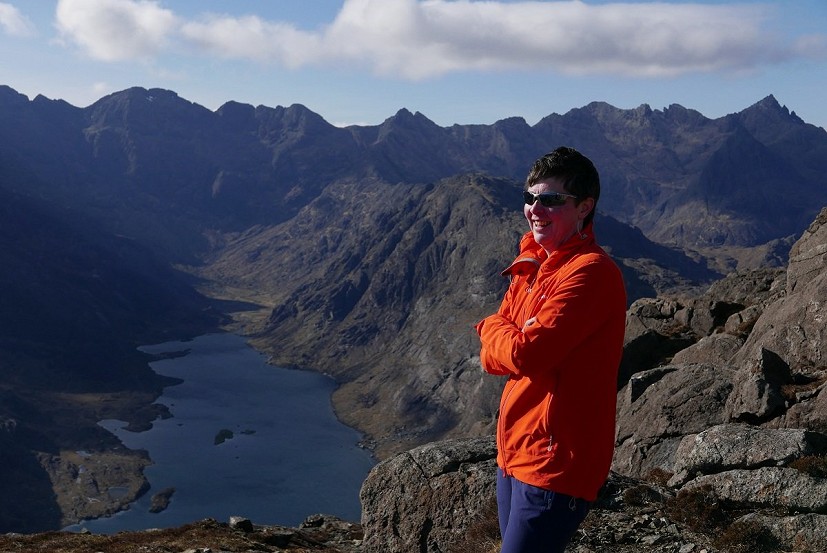
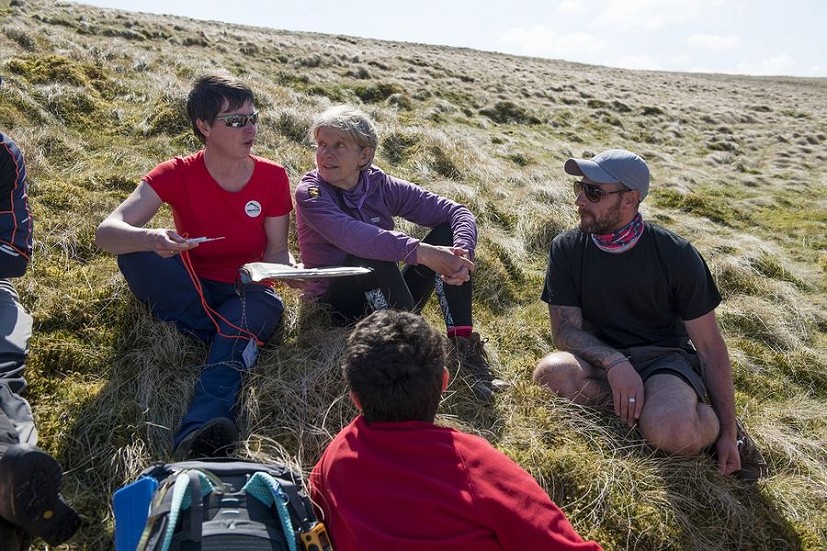



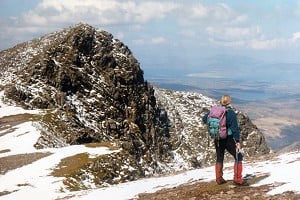
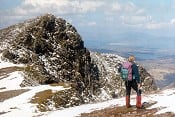
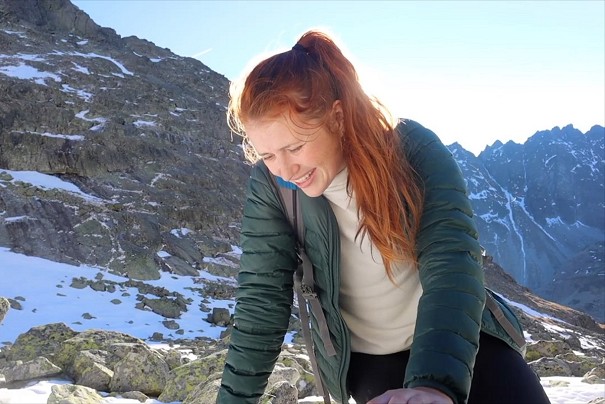
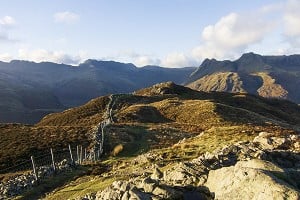
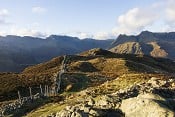
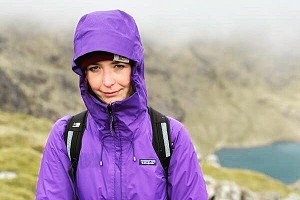
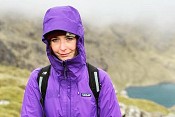
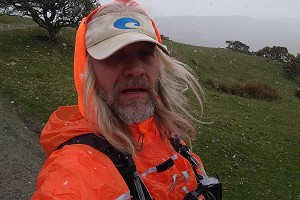
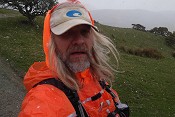
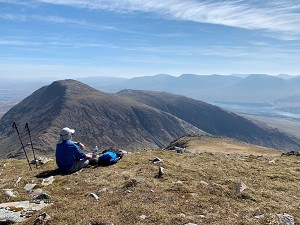
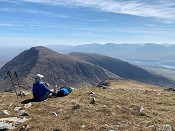


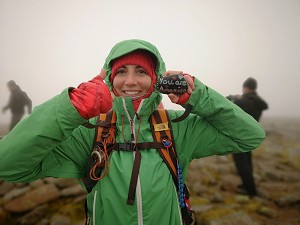
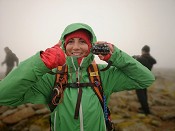
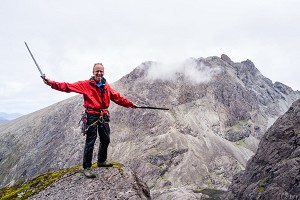
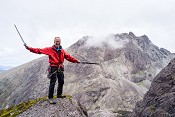
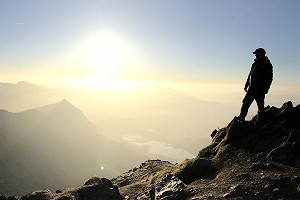
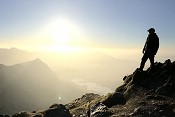
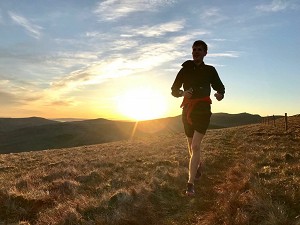
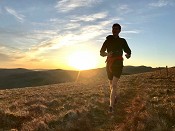
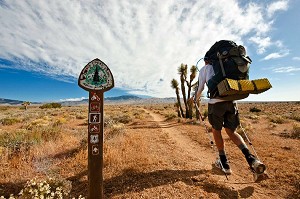
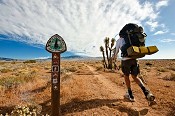
Comments